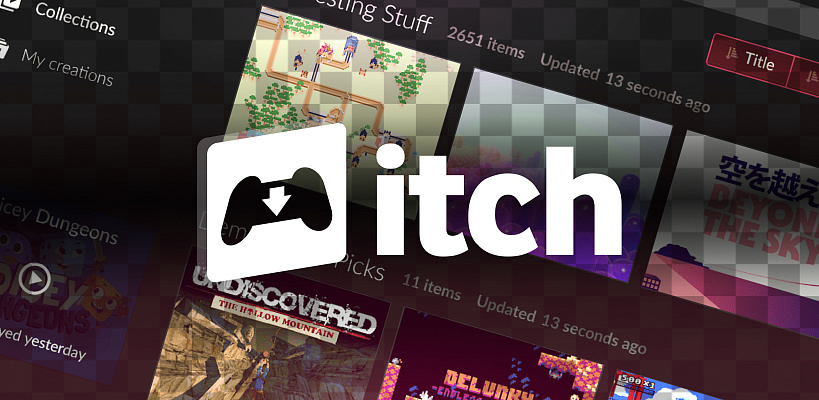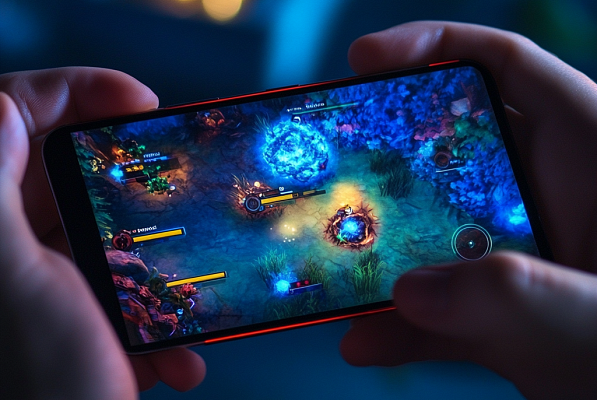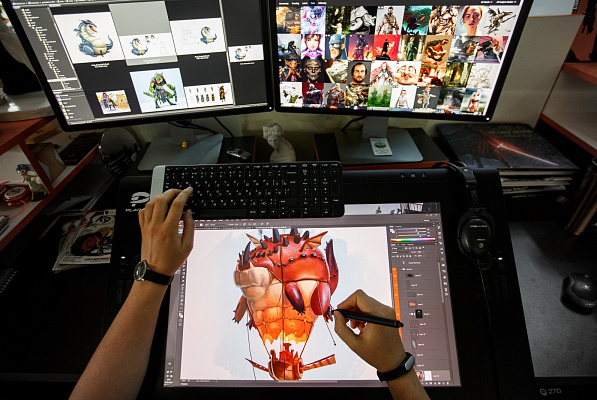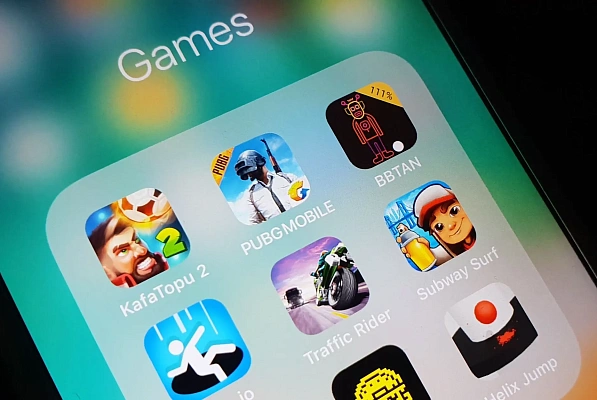Imagine: you've just finished your first game. Maybe it’s a pixel platformer where a cat jumps across clouds, or a dark horror that gives you chills. You’re proud of your creation, but how do you show it to the world? In 2025, the gaming market is oversaturated: Steam publishes dozens of projects daily, and the App Store demands perfect quality. But there’s a place where indie developers feel right at home — itch.io. This is a platform created for people like you: enthusiasts who want to share ideas, gather feedback, and find their first fans. There are no strict rules here, and the community loves experimental projects. In this guide, I’ll explain how to turn itch.io into your ticket to success. We’ll walk through the path from preparing your game to promoting and monetizing it, with examples and tips that will help beginners.
Why is itch.io Your Best Friend?
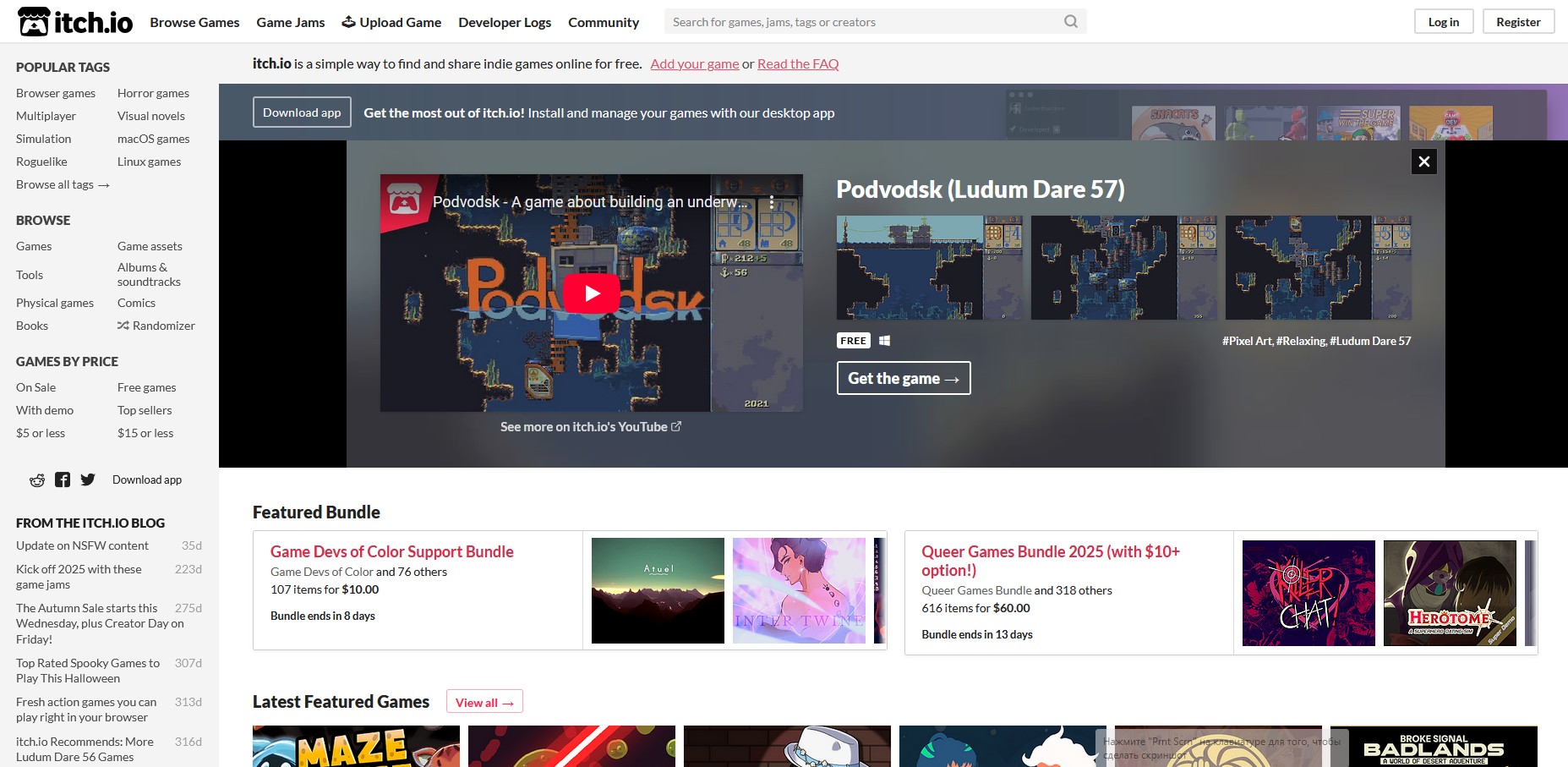
First of all, publishing is as simple as it gets. Unlike Steam, where you have to pay $100 for a release and go through moderation, on itch.io you upload your game in a couple of minutes. It’s like uploading a video to YouTube — quick and without unnecessary questions. Players on itch.io are enthusiasts who seek out unusual projects, whether minimalist puzzles or strange arthouse experiments. Here, you’ll find an audience ready to give your creation a chance.
Another advantage is game jams. These are contests where developers create games in 48–72 hours. Events like GMTK Game Jam or Ludum Dare attract thousands of participants and viewers. This is your chance to showcase your game and get feedback. Plus, itch.io offers flexible monetization: you can sell the game, give it away for free, or use the “pay what you want” model. For example, A Short Hike started with this model and raised thousands of dollars from grateful players.
But the most important thing is the community. Itch.io is not just a store, but a place where developers and players exchange ideas. Here, you can find support, inspiration, and your first fans. Take Vampire Survivors: the game started as a prototype in a game jam, received feedback on itch.io, and grew into a global hit. Your story could start the same way.
Preparing Your Game: Make It Ready for Debut
Before pressing “publish,” imagine your game as a painting you’re showing at an exhibition. It doesn’t have to be a masterpiece, but it should be complete enough to intrigue. Even if it’s a prototype, it needs to be playable. If you’re making a platformer, make sure the character jumps, runs, and doesn’t get stuck in walls. If it’s a puzzle, check that the levels are solvable. Players on itch.io are open to early versions, but bugs and lack of instructions can scare them off.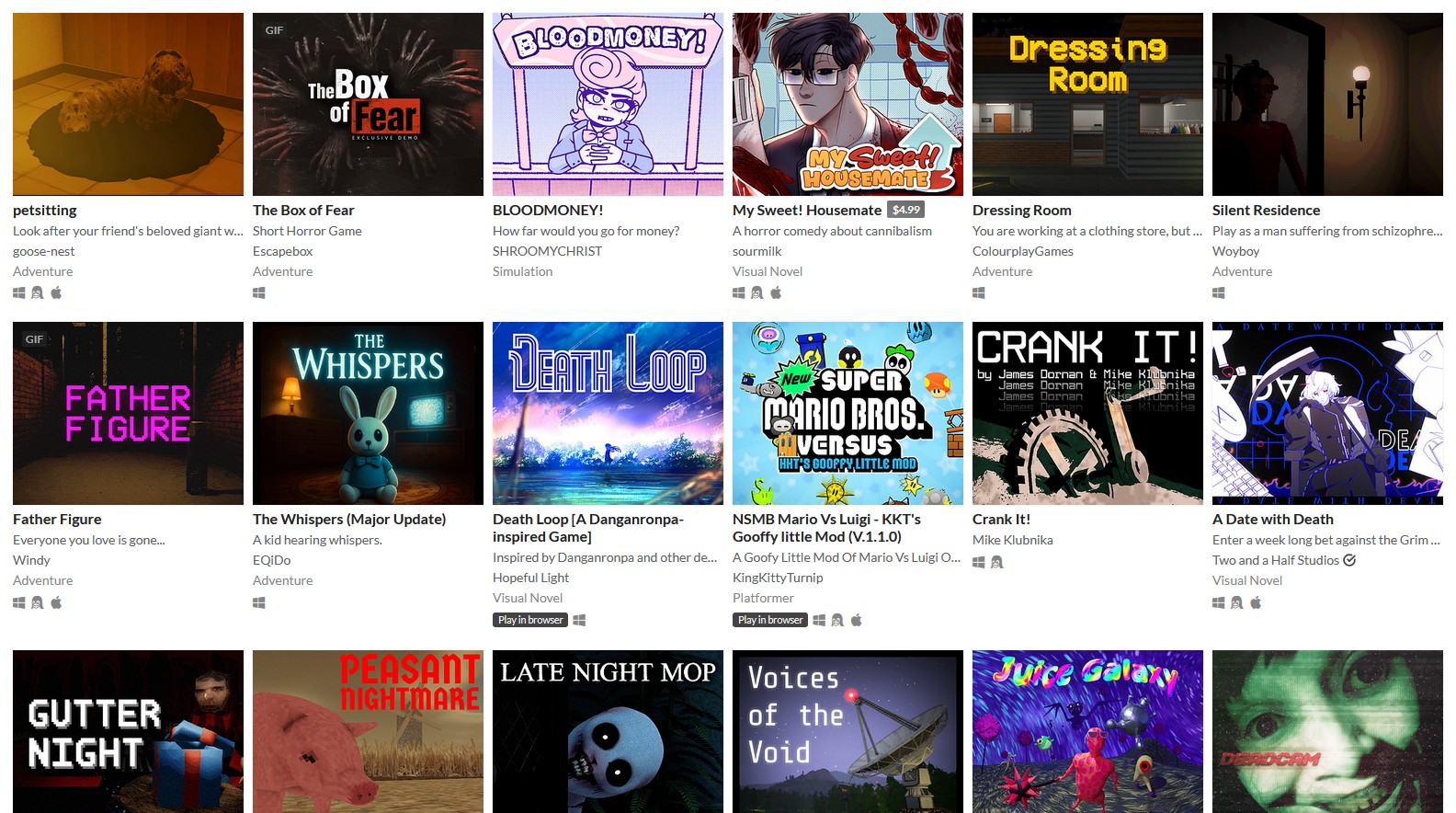
Trailer is your ticket to attention. A short video of 30–60 seconds can tell more about the game than a long description. Use DaVinci Resolve for editing and add music from Freesound (check licenses). Show gameplay, add text like “Download now!” and make a vertical version for TikTok or YouTube Shorts. For example, the Dofus trailer used bright pixel art and dynamic music, which immediately drew attention.
Description is your story. Don’t write a dry list of features. Tell what your game is about and why it’s special. For example: “Dive into the adventure of Pixel the cat, who is searching for his home in a retro world. Jump, collect stars, and avoid traps!” Add humor or a personal tone, like Undertale did, to stand out among hundreds of other projects.
Creating a Page on itch.io: Your Showcase
Now that the game is ready, it’s time to create a home for it on itch.io. It’s like opening a small shop where everything should be in its place. Register on itch.io — it’s free and takes a couple of minutes. Click “Create new project” in your profile and select the project type (Game). Upload the game in .zip format for PC, .apk for Android, or HTML5 for browser. Make sure it launches without additional programs — players appreciate simplicity.Game Title is the first thing they’ll see. Make it memorable and include keywords, for example, “Pixel Quest: Retro Adventure.” This helps with search. Tags are your helpers: add 5–10, such as “pixel-art,” “platformer,” “horror,” or “co-op,” depending on the genre. Look at what tags similar games use, like Faith for horror or A Short Hike for relaxing adventures.
The description should be concise but engaging. Break it into paragraphs, add headings and lists for convenience. Specify the genre, key features, and who it’s for. For example: “For retro game lovers” or “Co-op action for friends.” Don’t forget a call to action: “Download the demo and share your impressions!”.
Visuals are what sell the game. Upload a bright cover (315x250 pixels), 3–5 screenshots, and a trailer. Make sure they load quickly and look professional. The A Short Hike page is a great example: minimalist design, clear screenshots, and tags “relaxing,” “adventure” attracted thousands of players.
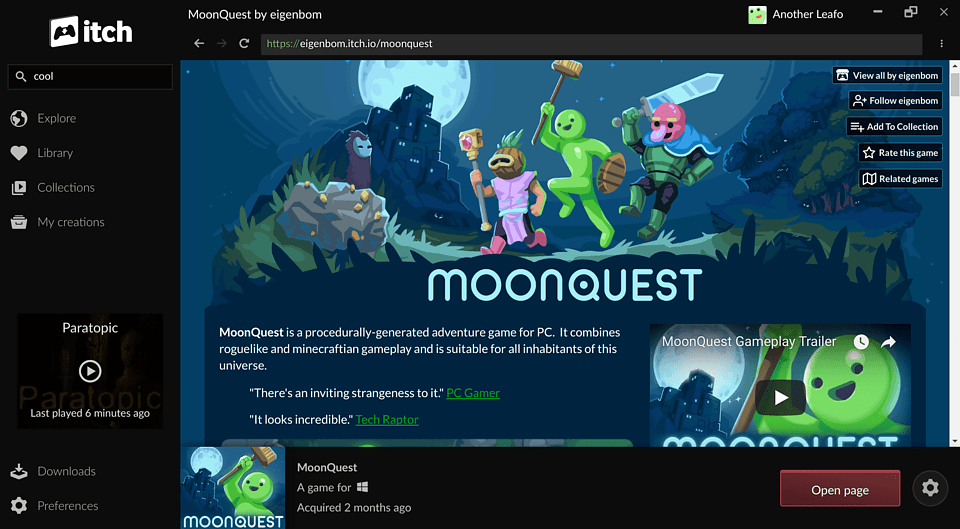
Promotion on itch.io: Become Part of the Community
Itch.io is not just a platform, but a community where developers and players exchange ideas. To get your game noticed, become an active participant.
Game Jams are your ticket to visibility. These are contests where you create a game in 48–72 hours based on a given theme. GMTK Game Jam or Ludum Dare attract thousands of participants, and your game can make it to the top if it’s creative. For example, Vampire Survivors started as a prototype on Ludum Dare, and feedback helped refine it into a hit. Even if you don’t win, player feedback is invaluable. Publish the game at the start of the jam, share the link with the hashtag (#GMTKJam), and play others’ projects — this draws attention.
Communication with Players is the key to success. Respond to comments on the game page, even if they’re critical. Ask questions: “What did you like?”, “What should be improved?”. This shows you value opinions and motivates players to return. Participate in itch.io forums, such as “Indie Horror Games,” share development stories, and avoid direct advertising.
Promotion Beyond itch.io: Social Media and Streamers
To attract more players, go beyond itch.io. Social media is your megaphone. On X publish teasers, GIF animations of gameplay, and hashtags #gamedev, #indiegame, #itchio. On TikTok or YouTube Shorts, make short videos (15–30 seconds) with challenges like “Can you pass this level?”. Create a Discord server for fan communication — it’s a place to share updates and hold contests.
Micro-influencers are your allies. These are streamers and bloggers with 1,000–50,000 subscribers who love indie games. Find them through Keymailer or Indieboost and send keys for reviews. Offer something unique: early access, a custom level, or a mention in the credits. Even one stream can bring 100–200 downloads. For example, Among Us skyrocketed thanks to streamers who shared their emotions from the game.
Don’t forget about gaming media and forums. Send press releases to IndieDB or Rock Paper Shotgun. For Russian-speaking audiences, use DTF or Stopgame. Publish your game on Reddit (r/indiegames, r/gamedev), but make posts informative: tell how you created the game, not just advertise. Forums like TIGSource are a great place to communicate with developers.
Monetization: How to Earn on itch.io?
Now about money. Itch.io offers flexible ways to earn, even if your game is a prototype. Here are the main options:
- Pay-what-you-want: Players pay any amount, including $0. According to itch.io data, the average donation is $2–5.
- Fixed Price: Set $3–10 for the full version.
- Donations: Add links to Patreon or Ko-fi.
- Free with DLC: The base is free, but additional content is paid.
For your first game, try “pay what you want.” This lowers the barrier for players, and many are willing to support you. For example, A Short Hike raised thousands of dollars thanks to this model. Regularly update the game: fix bugs, add levels or characters. Publish a “roadmap” with plans so players know what to expect.
Use itch.io analytics: it shows views, downloads, and income. For deeper analytics, integrate Google Analytics or collect feedback through Google Forms.
Success Cases: Lessons from itch.io Hits
Let’s look at games that started on itch.io and became stars:
- A Short Hike: A relaxing game about climbing a mountain used the “pay what you want” model and active communication on X. The developer responded to reviews, creating a loyal fanbase. Result: millions of dollars on Steam.
- Faith: A horror with pixel art was promoted through game jams and forums. The unique style and dark plot made it cult.
- Vampire Survivors: A prototype for Ludum Dare received feedback on itch.io, which helped refine the game into a Steam hit.
These cases show: success starts with community, a quality page, and constant updates.
Mistakes to Avoid
- Weak Page: Blurry screenshots or scant description scare off players.
- Ignoring Feedback: Not responding to comments loses trust.
- Spam on Social Media: Make content interesting, not advertising.
- Unrealistic Expectations: Itch.io is a start, not the end.
- Lack of Updates: Players quickly forget projects without updates.
Conclusion
Itch.io is your launchpad in the world of game dev. It’s a place where you can experiment, learn, and find your first fans. Publish your game, even if it’s not perfect, communicate with the community, and don’t fear mistakes. By following this guide, you’ll be able to create a page, attract players, and perhaps lay the foundation for a hit. Your game could become the next Vampire Survivors — it all starts with the first step.

